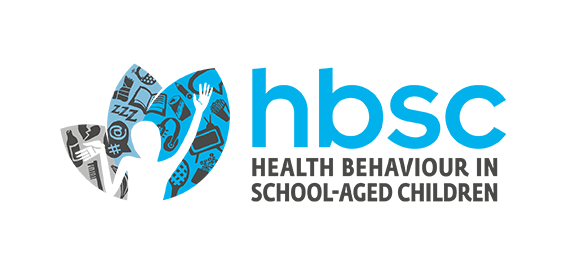Policy impact
The end goal of the HBSC study is to improve the health and well-being of young people. There are a number of ways in which the survey has been a policy influencing tool:
- An important contribution from the survey has been the increasing number of countries that have joined over its three decades of existence. This raised the bar nationally around data availability on children and young people, and also by enabling cross-national comparisons over time that empower policy makers with evidence from which to build strategy and programmes.
- The HBSC study has been generating research since the early 1980s, thus contributing to the scientific knowledge base (theoretically and practically) around adolescent health.
- By connecting HBSC data to monitoring and surveillance efforts it becomes the benchmark from which policy-makers and relevant stakeholders measure change to affect the health and well-being of the region’s young people.
- The HBSC study has a role to play in providing advocates with evidence to support causes that affect child and adolescent health and well-being, as well as providing technical advice in the interpretation of the data used. In doing so, it embodies a knowledge translation resource with the capacity to influence policy, programmes and practices, raising public awareness that can, in turn, shape the discourse around adolescent health.
The HBSC study, through its data and researchers, represents an invaluable resource to inform a wide range of policy agendas at national and international levels. The information and knowledge that has been generated by the study since the early 1980s provides a solid evidence base to support policies and strategic frameworks that improve young people’s health and address health inequalities.
CASE STUDIES
The HBSC study has informed the development and implementation of policy for children and adolescents for more than three decades. The growing recognition that adolescence is a critical period for later health and well-being has highlighted the need for, and importance of timely and accurate data. To date, HBSC data have been central to health promotion efforts and developments in practice, policy, and legislation at both national and international levels.
Governments and other stakeholders have used HBSC data to identify priority areas for adolescent health, set targets for health improvement, and monitor the impact of policies and programs. This has led to system changes and targeted policy actions in areas of primary public health concerns such as substance use, healthy lifestyles, and adolescent health and well-being.
Creating a strategy for pregnancy and parenthood for young people in the United Kingdom
The HBSC team in Scotland provided key data to help shape public health policy and the Pregnancy and Parenthood in Young People Strategy.
Advancing the fight against sugar in Latvia
Acting on HBSC study results the Latvian government introduced an excise tax on sweetened drinks, alongside a ban on soft drinks, sweets and salty snacks in schools.
France: data collection helps policymakers devise careful prevention strategies to improve adolescent health
By swapping rivalry for cooperation in France, HBSC and ESPAD have produced a valuable, centralised system that allows the Government to more effectively tailor interventions to improve young people’s health.
Nordic collaboration tracks positive mental health among adolescents
After successive HBSC surveys revealed persistent problems with stress in schools and mental health complaints among young people, the Nordic Collaboration on Positive Mental Health was established to coordinate regional research and to help plan and evaluate public health interventions.
Taxing alcopops in Germany
HBSC study results in Germany prompted the Government to introduce the Alcopops Tax Act, generating revenue that was then used to support alcohol prevention and education programmes.
Tackling mental ill health in Sweden
In response to national HBSC data, the Public Health Agency of Sweden launched a major cross-sectoral consultation with civil society and mental health professionals to review the evidence on the causes of increased psychosomatic symptoms among young people.
